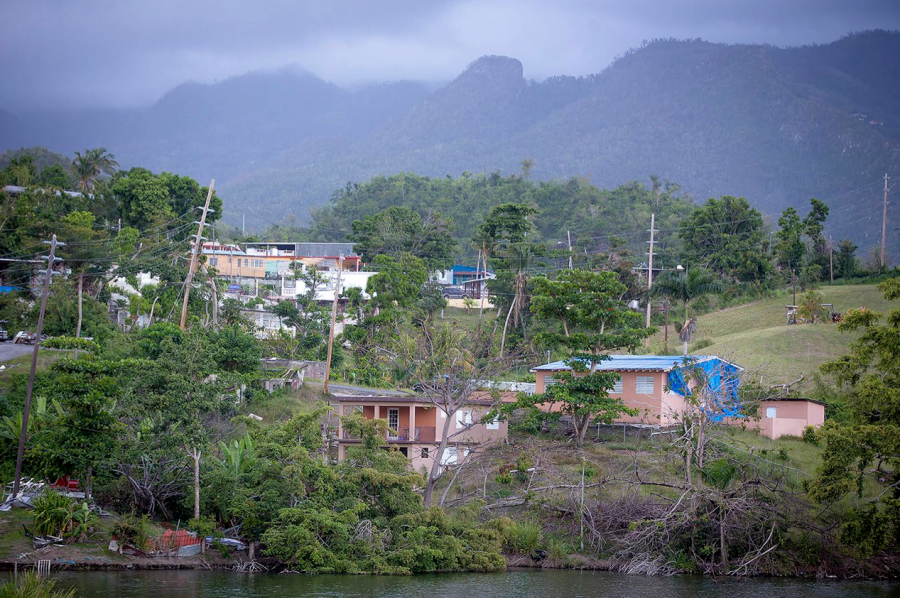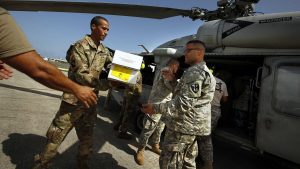Jaimes: Revisiting Hurricane Maria
A look back at the political climate that surrounded Hurricane Maria and Puerto Rico shows that many reactions were unwarranted and unsupported.
Trees remained damaged and destroyed on the edge of a lake and blue FEMA tarps covered rooftops more than seven months after Hurricane Maria, Wednesday, April 18, 2018 in Villalba, Puerto Rico. (Elizabeth Flores/Minneapolis Star Tribune/TNS)
August 22, 2018
It’s been almost a year since Hurricane Maria struck Puerto Rico. In one of my first articles, “What hasn’t been said about U.S. efforts in Puerto Rico,” I urged readers to do their own research and not simply blame the U.S. solely on their dislike for President Trump.
I was wary to criticize the U.S. without knowing exactly what was going on with the situation. Almost daily, the media would tell me to lose my mind over what was going on in Puerto Rico … How dare we sit around and do nothing?
Of course, I was concerned for my family who were still on the island, but my direct connection with them eased fears that many Americans watching the news could not be comforted with.
After declaring bankruptcy only months before Hurricane Maria, Puerto Rico was in a great state of devastation — there is no denying that. The combined effort to paint the United States as the enemy of Puerto Rico, however, was not only dishonest but also deflected from real challenges the island faced.
On July 5, CBS News reported that three government officials were facing corruption charges. Two of the officials, former directors of finance for Toa Baja, were accused of using $5 million of federal money to fund employees of the town from 2014 to 2016.
The last official, Mayor Miguel Ortiz, is accused of defrauding $3 million from the federal government from 2013-2016 and accepting $33,000 cash from a contracted company in his municipality after misrepresenting the cost of a local project. The total of $8 million stolen funds could have avoided the financial crisis Puerto Rico was in just before the storm and could have put it in a better place to deal with effects of the storm.
On Aug. 10, the New York Times reported that “containers of hurricane donations found rotting in Puerto Rico parking lot.” As water and baby supplies were donated to the island after the storm, the National Guard moved quickly to distribute items to those in need. Goods that were not immediately distributed were housed in trailers in the parking lot of the San Juan election bureau office, where they were left to rot and become rat-infested. The donated goods had been there for almost one year.
Workers in the elections commission office said that calls were made to the governor’s office and to the National Guard on distributing the rest of the materials, but nothing was done about it. After a video of water being stored in the trailers surfaced, the National Guard claimed that materials in good condition will be distributed to nonprofits in the near future. A spokesman for the National Guard, Maj. Paul Dahlen, thanked investigative journalism for speeding the process of assistance to those in need.
From stealing federal funds to denying calls about materials useful to those who have nothing, the Puerto Rican government should take some of the blame for what it has failed to do — things that were more than in its power to take care of. The emerging details of the storm demonstrates that directing blame on an unpopular president for the failures of others speaks volumes more of those critiquing than it does of him.




